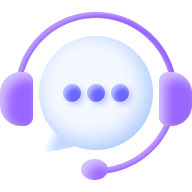Artificial Intelligence (AI) is making waves in virtually every field, and fortune-telling is no exception. While skeptics may dismiss it as pseudoscience, many see AI-powered fortune-telling as a modern, low-cost psychological therapy tool. Let's explore this phenomenon in depth.
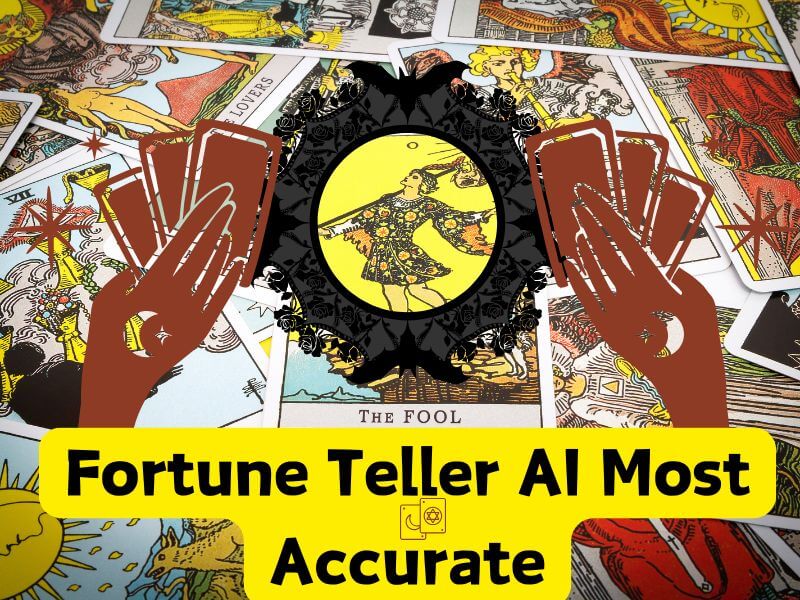
Part 1: AI Fortune-Telling as a Low-Cost Personal Therapist
In today's fast-paced world, mental health challenges are on the rise, but traditional therapy can be expensive and time-consuming. AI fortune-telling steps in as an accessible alternative for those seeking emotional support. These tools simulate the role of a personal confidant, offering users tailored advice, predictions, and insights.
Whether it's through tarot readings, astrology reports, or personalized daily horoscopes, AI algorithms analyze user inputs to generate interpretations. While they may not replace professional psychological counseling, they provide comfort, spark self-reflection, and even motivate users to take positive action.
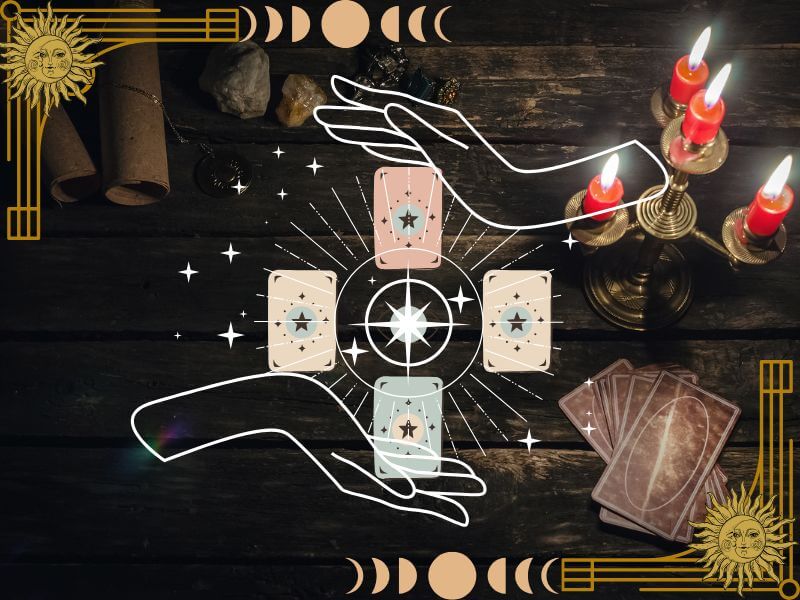
Part 2: Fortune Teller AI Most Accurate-Telling Tools
If you're curious to try AI-powered fortune-telling, here are three widely-used platforms:
1.DeepAI
DeepAI provides an AI Fortune Teller that offers quick answers to users' questions, delivering concise responses to help users discover their fortunes.
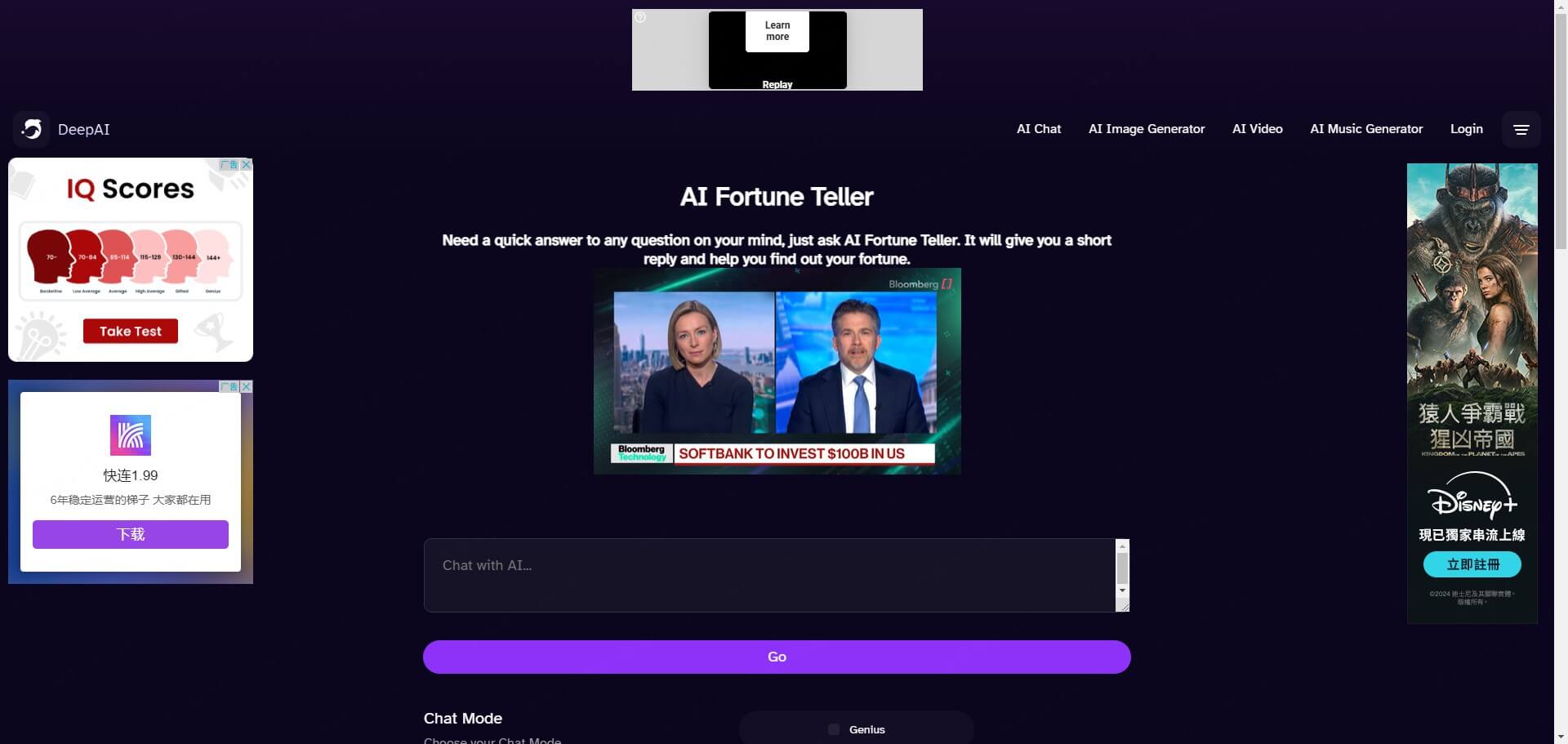
2.Typli.AI
Typli.ai offers a free AI Fortune Teller that provides fun, creative fortunes tailored to users' questions about love, career, or general life inquiries. This tool is intended for entertainment purposes, allowing users to explore imaginative predictions.
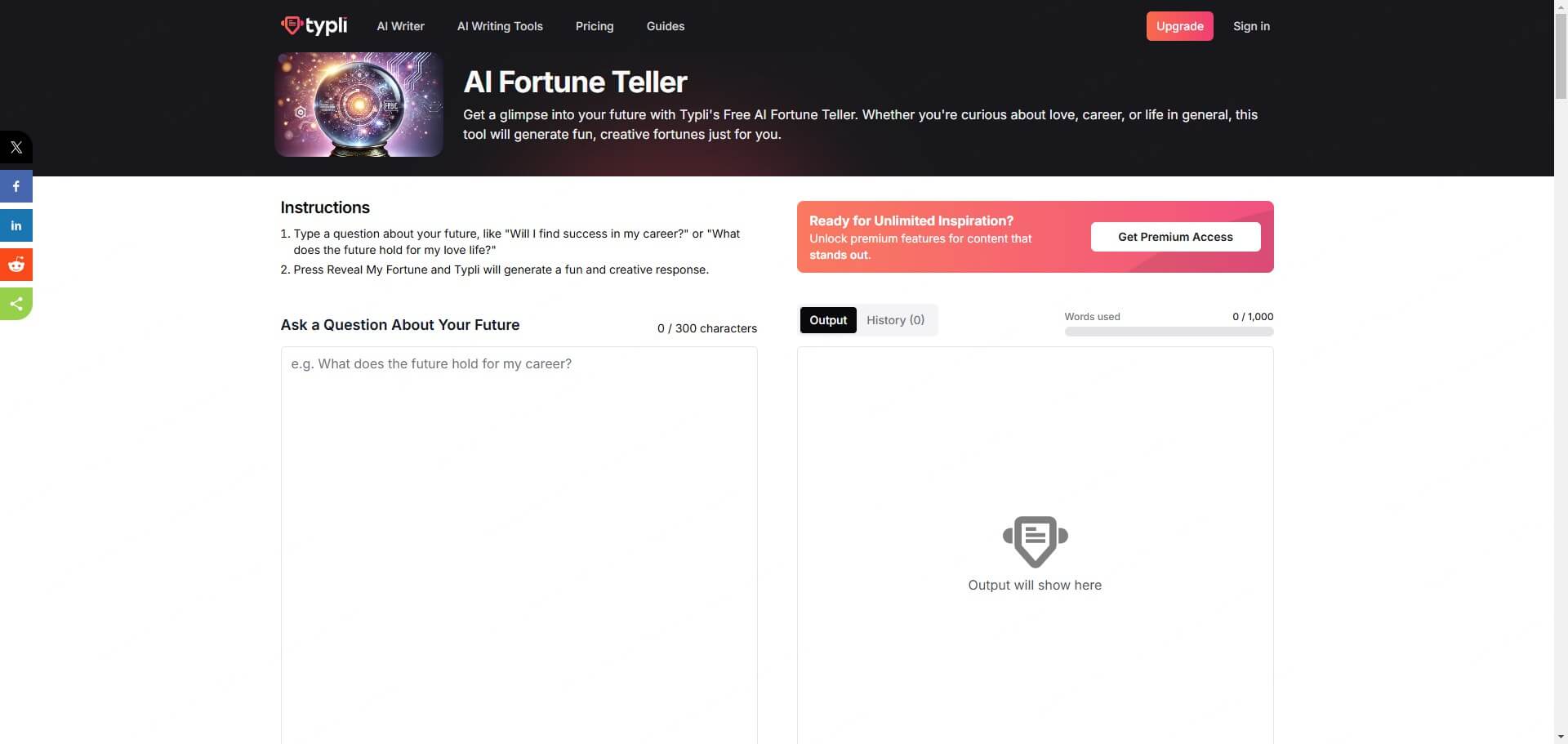
3.Yeschat
YesChat features an AI-powered Fortune Teller that generates insightful, positive predictions and advice based on user-provided birth details or personal preferences. It's designed for entertainment and personal reflection rather than scientific accuracy.
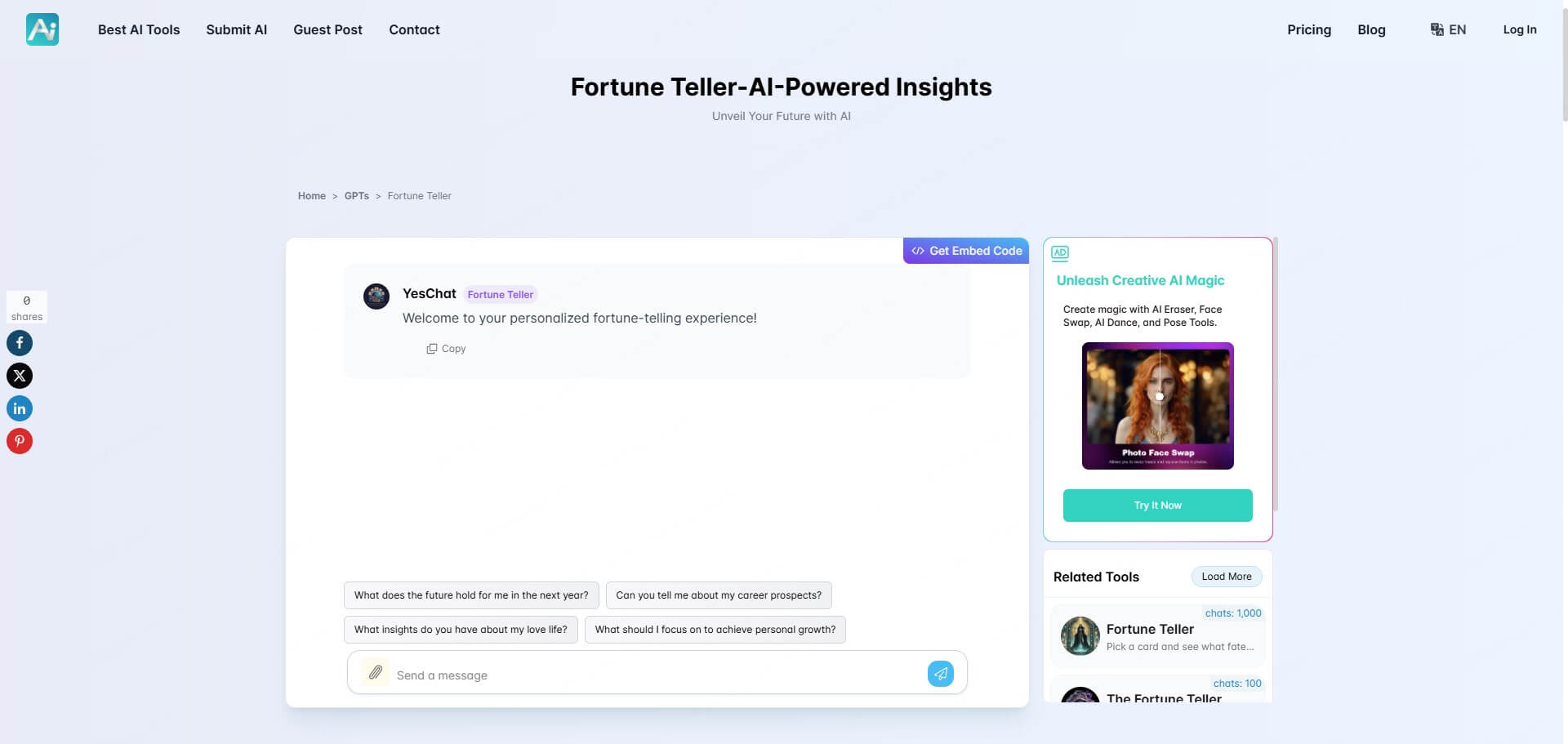
Part 3: Are the results of AI divination actually accurate?
Regardless of whether the theory of tarot divination is scientific and credible, the interpretation of AI divination after big data analysis is not necessarily objective and neutral. AI divination seems to be more inclined to give positive answers to all kinds of anxiety-ridden questions from users.
I asked all three AI fortune tellers the same question, which was “Will my Saturday date go well”, and all three AIs coincidentally gave positive answers.
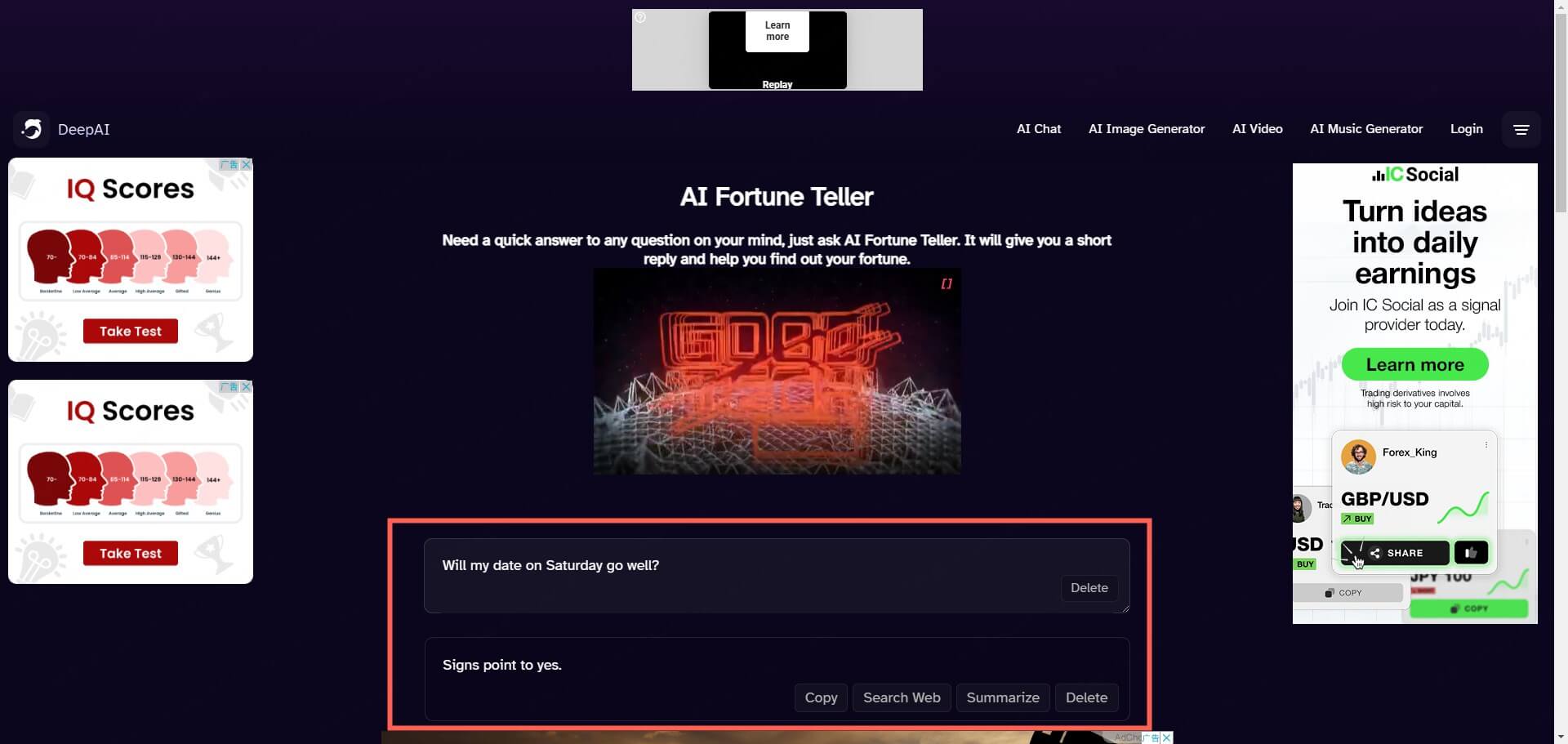
This is the answer from DeepAI
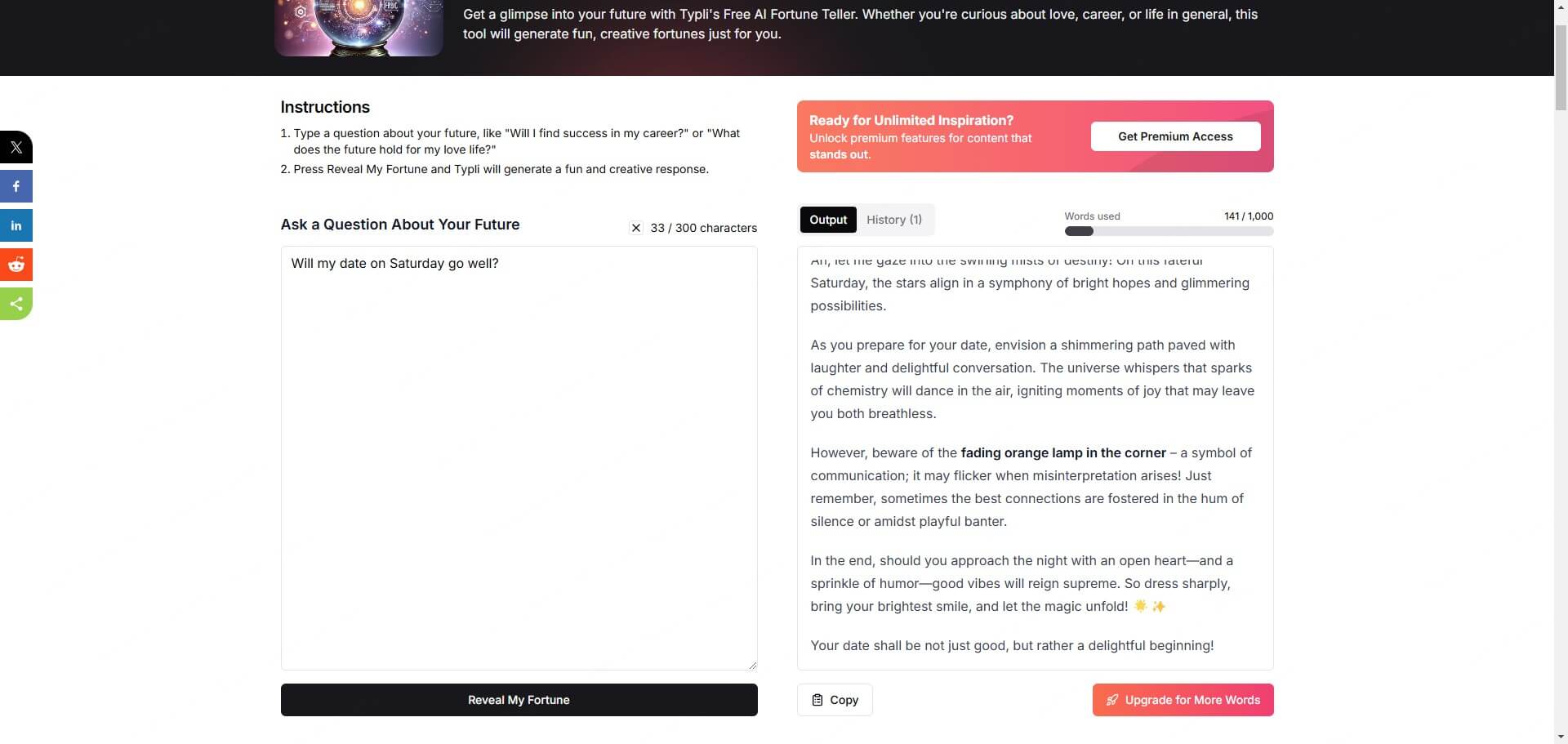
This is the answer from Typli.AI
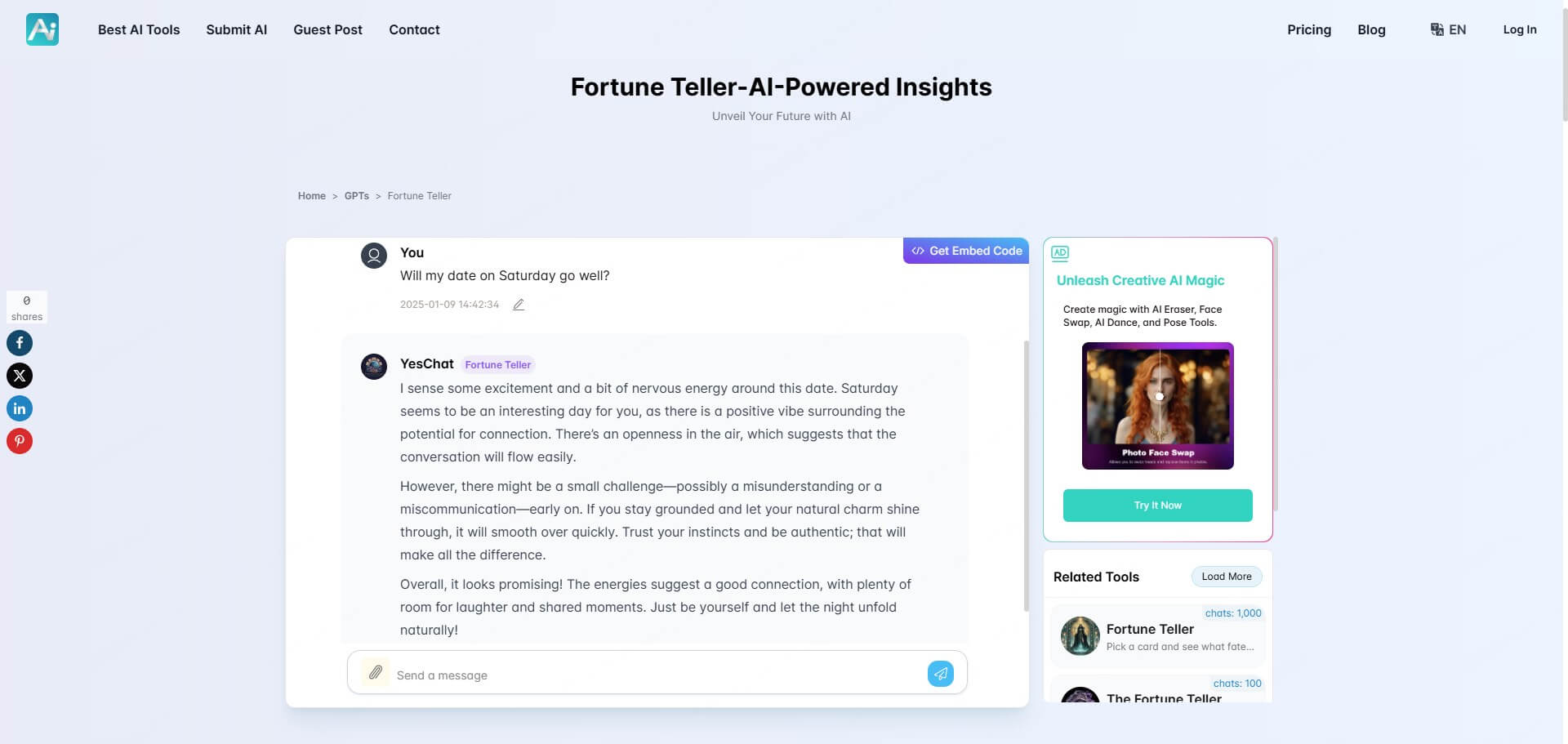
This is the answer from Yeschat
Perhaps the learning process of AI divination includes not only the theoretical knowledge of tarot divination, but also the psychological analysis of people when they perform divination. This suggests that the results of AI divination's card draws may not be completely random, but rather present corresponding cards and interpretations with the aim of providing positive feedback to some extent.
Part 4: Young People Seek Psychological Support Through AI
It's no secret that younger generations are turning to AI fortune-telling in droves. But why? For many, it's not about predicting the future. Instead, it's about understanding themselves in the present.
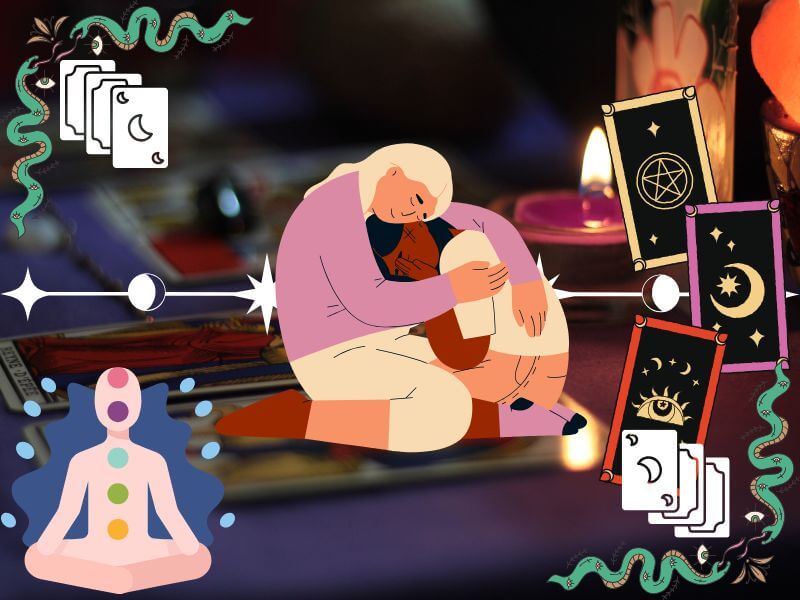
When young people consult tarot cards or astrological charts, they’re often searching for clarity about their feelings, relationships, or life goals. The process of interpreting these symbolic tools allows for introspection, providing users with a sense of control and reassurance. Rather than focusing on the randomness of the future, AI fortune-telling helps individuals affirm their current identities and make more informed decisions.
Part 5: FAQS About Fortune Teller AI Most Accurate
Q1:Are fortune tellers accurate?
The practice of fortune-telling has been widely associated with instances of fraud. Its methods, such as tarot card readings and psychic consultations, often rely on random occurrences. This raises critical questions about how fortune-telling operates and the validity of its claims.
Q2: Can ChatGPT do fortune-telling?
The Fortune-telling GPT is an engaging application developed using the ChatGPT platform. It works by interpreting user inputs to create lighthearted and playful predictions about the future. Leveraging AI technology, its primary focus is on providing entertainment.
Q3: Is Chinese fortune telling accurate?
Divination, being rooted in the extensive accumulation of Chinese experiential knowledge, is inherently no more precise than other methods of relying on "experience-based insights."
Conclusion
AI fortune-telling is more than a novelty; it's a cultural phenomenon that serves as a digital-age tool for self-care and introspection. While its predictions may not always be accurate, the value lies in the journey of self-discovery it offers. For those seeking affordable and accessible psychological support, these tools provide an innovative way to connect with themselves and find clarity in uncertain times.









